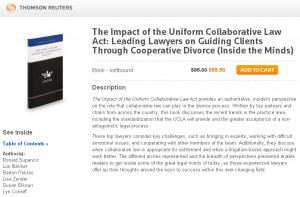Menu
Grieving Divorce
 Divorce is often a very traumatic life event during which many people are caught in a spiral of emotions, but expected to make decisions which will have a profound effect on the rest of their life and their family’s future. People find themselves wondering if they are crazy and feeling lost. But this is all normal. Research has shown that people grieve divorce in much the same way they grieve the death of a loved one: there are 7 stages, which can all intermingle and progress in any number of ways:
Divorce is often a very traumatic life event during which many people are caught in a spiral of emotions, but expected to make decisions which will have a profound effect on the rest of their life and their family’s future. People find themselves wondering if they are crazy and feeling lost. But this is all normal. Research has shown that people grieve divorce in much the same way they grieve the death of a loved one: there are 7 stages, which can all intermingle and progress in any number of ways:
- Shock or Disbelief: Coming to terms with the realization that a marriage is over can be very difficult. Some people are completely blindsided, never having considered it an option. In other relationships, the threat of divorce had loomed for years and people have difficulty accepting it as a reality, rather than just another prolonged argument or a power play. Indeed, research has shown the IQ drops 30 points when learning about a divorce! People often fall back to their primal fight or flight instincts in this stage.
- Denial: This stage frequently accompanies Shock and Disbelief. People will try to “win” their spouse back, or romanticize the relationship to focus only on the positives and negate any negatives to protect themselves from the pain of having to acknowledge that they are losing a spouse and a way of life that they have become accustomed to.
- Anger: The feeling of helplessness (whether it be toward the divorce because it is your spouse that wants it or toward your spouse, who you can’t force to accept it) often fuels anger. People experiencing this stage will often be aggressive and blame their spouse, other family members, or circumstances on the divorce. Many also use this stage as an impetus to run out and hire a pit-bull attorney who will take their spouse for everything, without regard for the overall family welfare in years to come.
- Bargaining: People try to allay feeling they have no power or control over the situation by bargaining to prevent the divorce. Some turn to a higher power, others try to bargain directly with their spouse—promising change and rewards for staying together.
- Guilt: self-blame and regret are powerful players in this stage, leading many to get stuck in the past, wishing they could do things differently: not argue with their spouse, give in more, and contribute to the family in other ways. This stage represents growth in thought, in that in order to feel guilt, people need to examine their own actions and see their part in the divorce. The problem here is achieving a proper balance and viewing the past through the proper lens, which can be tremendously aided by meeting with a Divorce Coach or other mental health professional who can assist with grasping all the emotions and acknowledging the past in a healthy way which allows movement toward the future.
- Depression: Overwhelming and debilitating sadness is a common reaction to the loss of a spouse and familiarity. The fear of the unknown can paralyze into inaction and a state of deep and profound sadness. People in this stage tend to compare the happier moments of the past to their present situation and wind up fueling their feelings of hopelessness.
- Acceptance and Hope: Eventually, people DO make it to this stage. It takes some far longer than others and sometimes, people relapse temporarily to earlier stages. This is normal! Once the fear of acknowledging that everything will be different and that you are getting divorced subsides, you will begin to find fulfillment and happiness in new ways and may even discover wonderful new opportunities you would not have had otherwise.
Think about this in terms of your divorce: you and your spouse are BOTH going through this and may be experiencing different sages at different times. Imagine how difficult it is to negotiate a healthy settlement if you are in such different and turbulent places emotionally. Utilizing the Collaborative Process can help alleviate these emotional discrepancies.











 Lori D. Becker is featured on Super Lawyers.
Lori D. Becker is featured on Super Lawyers.